We’re all familiar with brand differentiation as a concept. It’s an idea that applies to many aspects of your business, from how you position yourself to your target market to the products you sell. There are plenty of marketing philosophies around the idea, including those like the Blue Ocean Strategy.
For those unfamiliar with it, Blue Ocean is a marketing idea championed by professors at the INSEAD business school. The strategy details the value of differentiating yourself in the marketplace.
The whole thing is a rather extended metaphor describing the business landscape as an ocean. Traditional, competition-based business strategies represent a “red ocean” philosophy: bloody, competitive, and oversaturated waters. Conversely, companies seeking to differentiate themselves enough to avoid competing altogether adopt “blue ocean” philosophies: they avoid the fight, leaving themselves free to sell on their terms.
What is Brand Differentiation?
Brand differentiation is an aspect of your business model that makes you unique and distinct from the competition. Differentiating your brand gives you a competitive advantage when marketing to a specific consumer demographic. Brand differentiation applies across your entire brand line, whereas product differentiation focuses on a single product.
Brand Differentiation vs. Distinction
A brand distinction is a subset of differentiation. They differ because a brand’s distinctiveness is a specific set of actions they take. For example, this supplement company found a unique way to prevent the mess typically associated with digging for protein scoops settled at the bottom of the container.
What makes them different? A cleaner first-use experience helps to improve their brand identity.
What makes them distinct? They built a scoop into the inner lid of the product.
Why is Brand Differentiation Important?
Brand differentiation is essential to capture more market share or command a higher price with more significant margins. A study by PWC showed that consumers are willing to spend 16% more on a product with a better customer service experience.
Erewhon (a grocery retailer in Los Angeles) must understand this statistic as they have some of the highest prices for consumer packaged goods. Even with social media making fun of this fact, they still attract an obsessed audience with the experience.
When Brand Differentiation Goes Wrong
Being different doesn’t always translate to tremendous success. Many brands have unique product features or “different” customer experiences than their competitors, who have failed miserably. In contrast to Erewhon, the EU grocery retailer Fresh N Easy made a big push in the US, only to file for bankruptcy several years later.
Their point of differentiation was clerk-free checkout stands. They assumed that fewer employees meant they could satisfy customers with lower pricing. See how this disagrees with the PWC research. People are willing to spend more for an experience, but most customers are not as willing to pay less for a lack of customer service.
Brand differentiation can also go wrong when a business owner or product development team holds the “assumption” that they have the recipe for being a distinctive brand. There’s a good chance that what makes a brand different won’t impact the consumer. When you think of brand differentiation, it better be relevant to the consumer you hope to attract.
You can differentiate based on anything.
The concept of differentiation isn’t new. Brand differentiation is an ongoing goal for every company, even if a company cannot avoid competition altogether. And brand differentiation is always possible, even if it doesn’t seem like it.
For example, certain consumer packaged goods (CPG) purveyors might believe their products are too commoditized for meaningful differentiation. How many different ways can you sell a bottle of water?
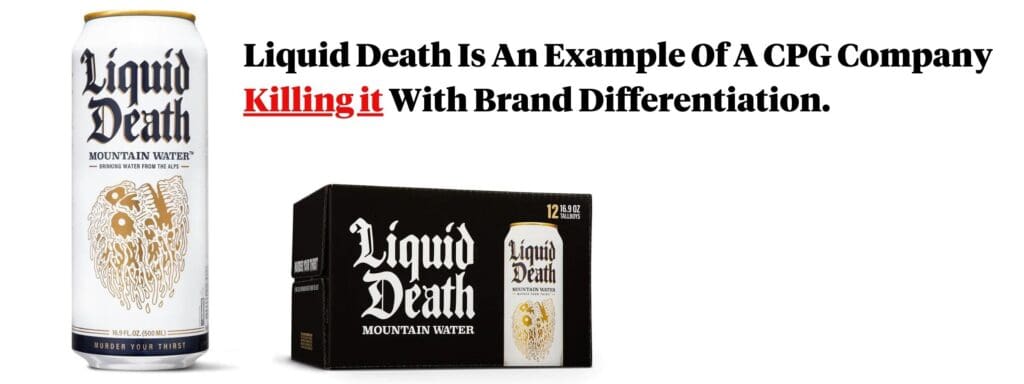
As it turns out, quite a few can accomplish differentiation. We can even brand a category as commoditized as water to significant effect – and it has. We’ve all seen how brands like Fiji and Evian command higher prices than bargain brands. But these luxury brands barely scratch what people will pay for artisanal water. Certain bottled water brands cost hundreds of dollars per liter, based on little more than the strength of effective branding and bespoke packaging.
We can chalk this up to the well-established fact that emotion drives purchasing behaviors more than logic or reason. (As if a $600 bottle of water didn’t hammer this point home. But hey, if the market will bear it – that’s capitalism, baby.) Regardless of the justification, these companies have turned a simple commodity into a high-value product targeted at a specific niche.
How To Differentiate Your Brand
There are endless ways to differentiate yourself from competitors. Sometimes all it takes is an off-site team collaboration to get the creative juices flowing. Other times, it makes sense to bring in a branding consultant or packaging design agency to help bring ideas to the surface.
Here’s a look at the most common brand Differentiators
- Finding a pricing gap
- Carving a niche
- Showcasing expertise
- Creating a unique product experience
- Brand Storytelling
- Cagetory innovation
- Becoming an industry Disruptor
- Aligning With Interests
- Aligning With Influencers
- Solving a problem
- Generating shock & Awe
- Developing a product personality
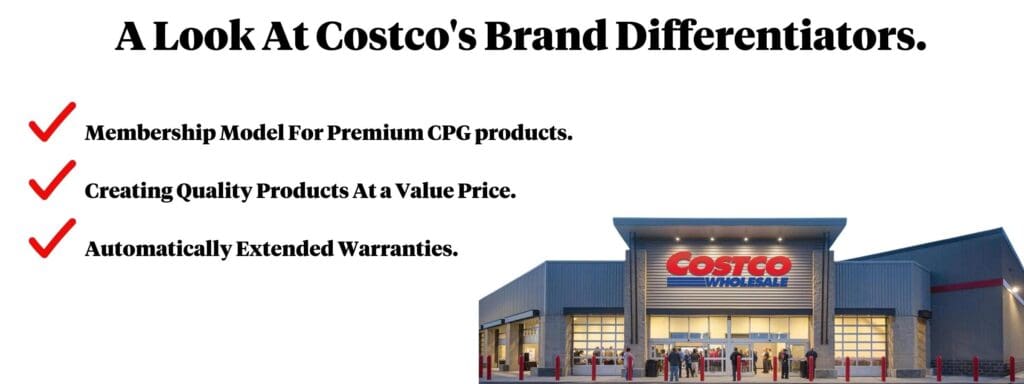
Finding your Brand’s angle.
It might seem crazy to those who can’t afford a month’s rent on a beverage, but the above is differentiation in the truest sense. Of course, most CPG brands can’t simply slap a few jewels on their packaging design, double the sticker price, and call it a day.
Differentiating yourself in meaningful ways relies on a thorough process of self-reflection. Companies need a dedicated brand development process based on self-assessment and target market research to determine their advantages and how to position them to impact consumers.
And while we can’t perform this research for you, we can offer some non-traditional tips for brand differentiation that may spark your imagination about positioning your products.
Brand Differentiation Strategies
Are you ready to start creating your brand differentiation strategy? Before you run off and schedule a meeting with your team, let’s look at ways you can make unique differentiators within the framework we’ve provided.
Behave differently from expectation.
Based on your research, you’ll find that your target market has some expectations of what they’ll see from your brand. These might be stereotypes based on what you sell or learned behaviors from past experiences with competitors. Either way, identify what your market expects, then throw it in the trash.
This idea applies to just about any element of your marketing strategy, but it can be particularly striking regarding price. (Remember our artisanal water?) Starbucks prices its coffee higher than competitors to telegraph a sense of quality.
Apple charges a premium for its products for the same reason – they’ve built so much brand equity over the years that people will continue to pay it. In both cases, these companies adopted a confident pricing model beyond what customers may have expected, and the market responded.
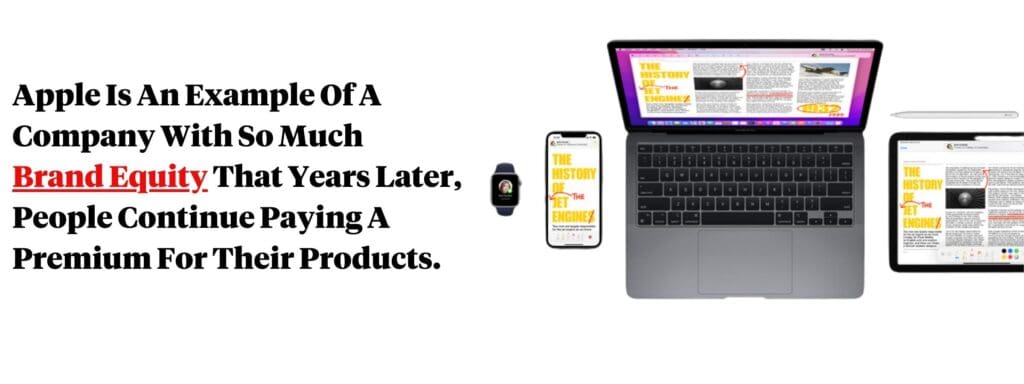
You don’t need to be Apple or Starbucks to pull this off. This is a foundational part of brand differentiation. When your competitors are all looking right, you look left.
Differentiate based on ethics.
Particularly for younger market segments (Millennials, yes – but also Generation Z and future Gens to come), we’re seeing differentiation happen on ethical, moral, and sustainable criteria. It’s not a secret; younger shoppers are savvier about the ethics of global supply chains and prefer to do business with companies that hold similar values. Fairtrade products. Sustainable organics. Free-range farming. These are all common points of differentiation that brands can leverage to stand out on the shelf. (Provided that you practice what you preach!)
These business practices tie into transparency as well. Modern consumers prefer to know what companies stand for and what’s going on behind the scenes. Even if you can’t differentiate yourself on the uniqueness of the product, you can leverage these branding elements to stand out from the crowd.
Cultivate relationships.
If you’re struggling to compete on product originality or price, consider competing in another way – relationship management. Consider how Lay’s used this strategy to generate buzz for their products. (Not that Lay’s needed to differentiate themselves in this way, per se – but it’s a great example.)
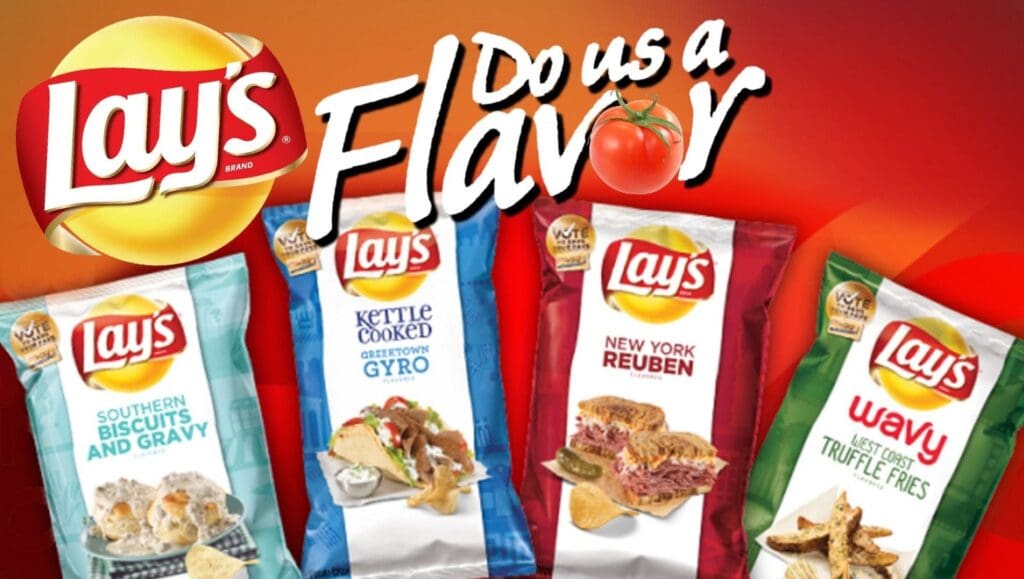
Rather than testing and rolling out new chip flavors as many brands do, Lay’s set up a series of contests encouraging customers to send their ideas in for consideration. (Remember the “ Do Us a Flavor “ contests?) The campaign was engaging and unique, making customers feel like they were contributing to a brand they loved. These strategies, often dubbed relationship marketing, can be a great way to differentiate yourself from competitors who couldn’t hoot about what their customers have to say.
Create a Sum Greater Than Its Parts
If you’re struggling to find an innovative or creative way to differentiate your brand, stop thinking about a single aspect of your brand. Sometimes, brand differentiation comes by finding several components that equate to a unique brand experience.
While vitamin packs are standard today, at one point, people were buying seven different supplements to get what a single pack now contains. Old-school bodybuilders still use Animal Pak, one of the original vitamin paks containing vitamins, minerals, omega 3 fatty acids, amino acids, herbs, and botanicals.
Did Animal Pak invent anything new? Nope. Did they solve a problem? Absolutely. Sometimes, the market penetration solution combines parts to bring new brand awareness.
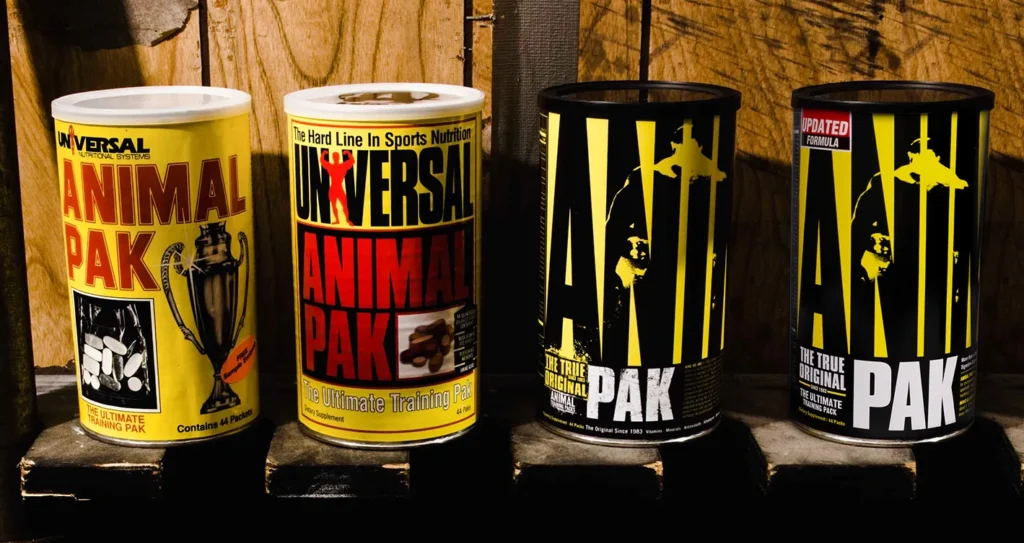
Marketing What Makes You Different
Contrary to what you might see expressed in marketing, a successful brand most likely has numerous differentiating elements to its brand. But you can’t include them all, or you will thin your marketing efforts. Brand communication through print and digital media can only include that differentiators have the most significant impact on sticking in the consumer’s mind.
Testing For Brand Differentiation
How do you determine which brand differentiator will have the most significant impact on brand recall? Before getting to that point, how do you know if you’ve created brand differentiation that matters?
Remember: Brand differentiation is always possible.
Differentiation is the name of the game for most brands, regardless of the industry. Every company wants to position itself as a unique leader in its niche. And while some companies will have an easier time of it than others, it should never feel like a chore.
Differentiation is how you speak to customers, earning their attention over dozens of other brands vying for their headspace. As such, it should be a goal that your company tackles with gusto. Find the meaning behind your brand, learn what your customers expect, and test out new ways to surprise them.
Brand Differentiation in Product Packaging
At SmashBrand, we create product packaging that performs on-shelf. We understand those successful CPG products don’t happen by chance. That is why we perform extensive consumer testing to determine what brand and product differentiations move the needle for greater purchase intent.
Our testing results in a design that gives companies strong brand positioning in their respective CPG category. Book a time to discuss your project with our team if you want to create a differentiation strategy that offers you the most influential competitive advantage.
Subscribe to
Nice Package.
A monthly newsletter that unpacks a critical topic in the FMCG & CPG industry.
Free Resource.
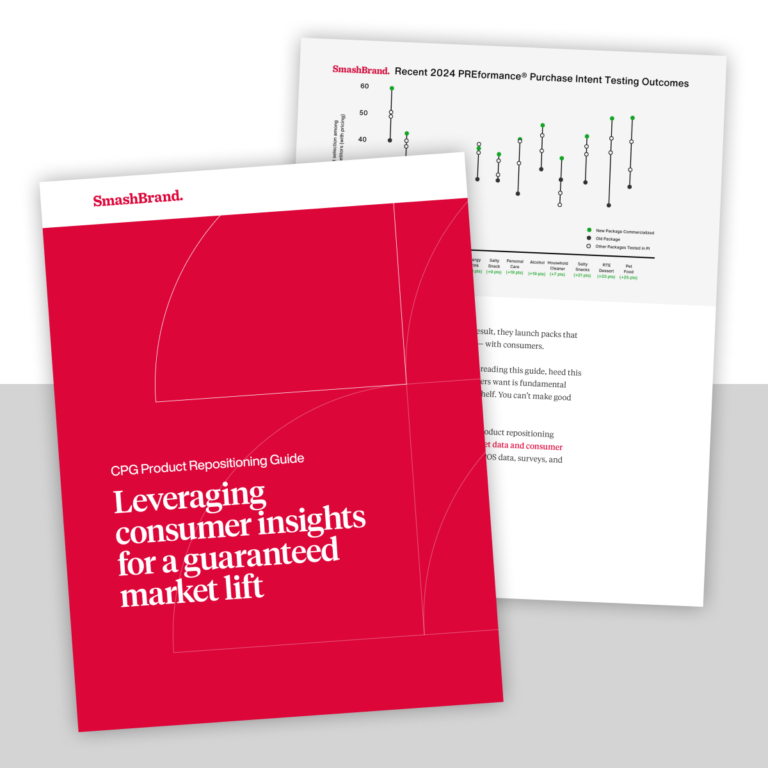
CPG product repositioning guide.
Explore the five undeniable signs your CPG product needs repositioning along with strategies for leveraging consumer insights for a guaranteed market lift.
Learn More About CPG product repositioning guide.